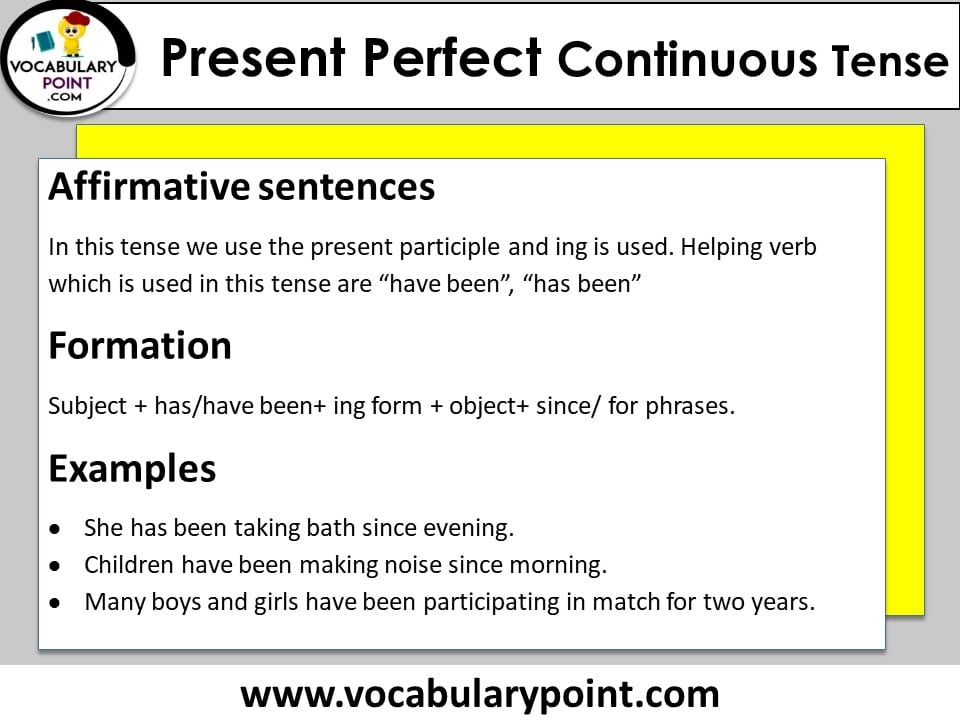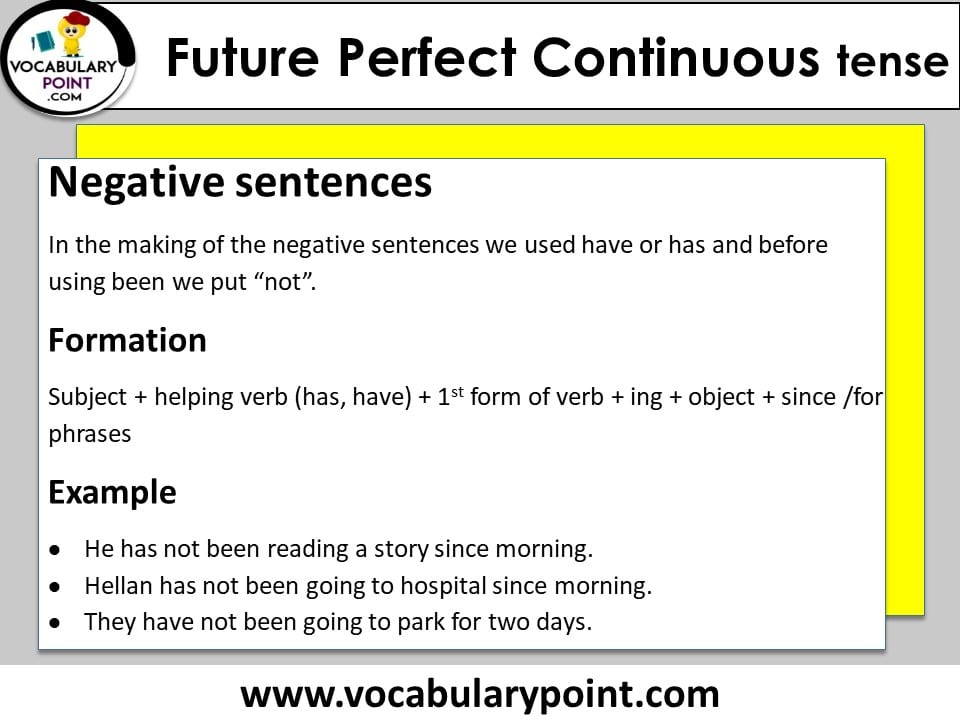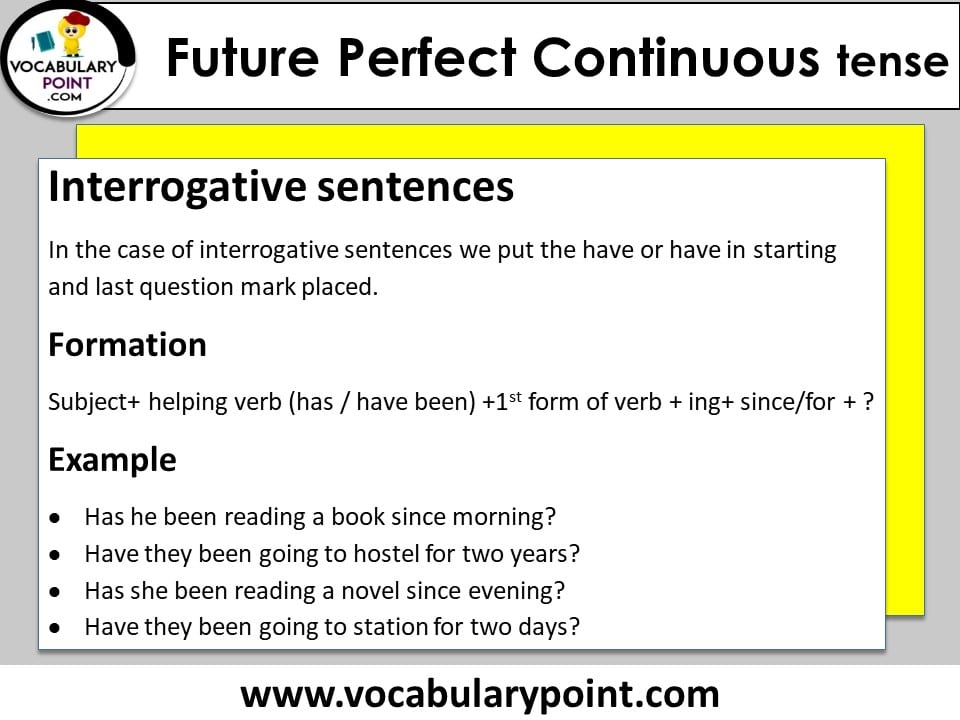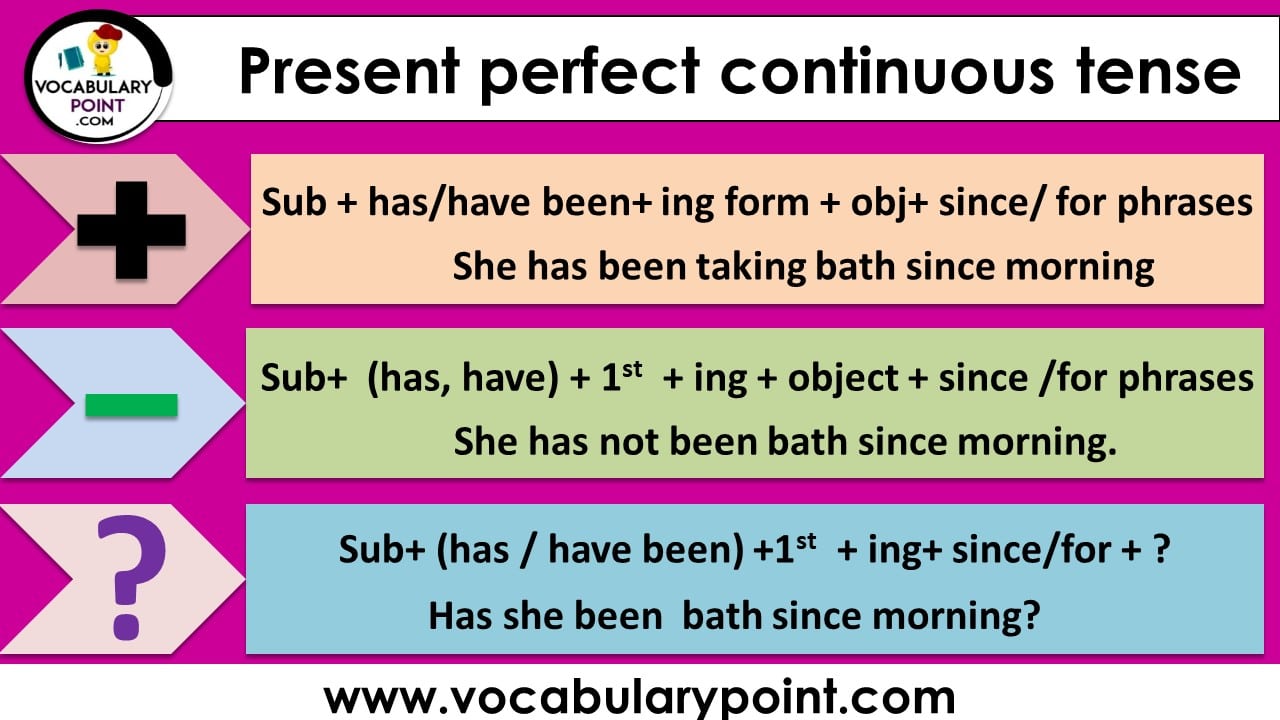Present perfect continuous tense, examples & formation. Here affirmative, negative, and interrogative sentences are explained with examples & sentences. You can download PDF of this lesson.
What are Present Perfect continuous tense?
The present perfect continuous tense is a verb tense used to talk about an action or experience that started in the past and has continued up until now. It is formed using the auxiliary verb “has/have” + been + the present participle of the main verb.
The present perfect continuous tense is used to talk about the duration of an action or experience up until now. It emphasizes the continuous or ongoing nature of the action, as opposed to the present perfect tense, which emphasizes the completion of an action or the result of an experience.
Here are some examples present perfect continuous tense:
- She has been drinking coffee for two hours.
- They have been visiting their grandparents every weekend for the past month.
- The sun has been rising in the east every day.
- The birds have been flying south for the winter every year.
- I have been studying English for three years.
- He has been playing soccer every weekend for the past month.
- We have been having lunch together every day this week.
- She has been reading a book for the past hour.
- They have been walking to work every day this week.
- The train has been arriving at the station on time every day this week.
- The flowers have been blooming in the spring every year.
- He has been wearing a suit to work for the past year.
- The children have been playing in the park every day after school this week.
- I have been watching TV for the past two hours.
- She has been speaking Spanish fluently for several years.
- The company has been holding a meeting once a week for the past year.
- They have been listening to music while driving for several hours.
- The river has been flowing into the ocean for centuries.
- I have been cooking dinner for my family every night for the past month.
- He has been riding his bike for exercise every day for the past two weeks.
Present Perfect continuous tense
In present perfect continuous tense also called as the perfect progressive tense shows that something started in the past and is continue in the present time. In this tense first form of verb is used with the addition of ing (1st form +ing). “Has/have been” are helping verbs of this tense. “Has been” is used with singulars. “Have been” is used with the plurals noun.
Formation
Subject + has/have been+ ing form + object+ since/ for phrases
Related Post: Past perfect continuous tense
Examples
- I have been studying for three hours.
- I have been watching news since 8am.
- Tara hasn’t feeling well for two months.
- He has been playing football for a long time.
- Is it working now?
- Is he singing?
- Are we having dinner?
- Are you hating him?
- Am I going with you?
- Are they coming?
Also Study: Future Perfect continuous tense
Affirmative sentences
In this tense we use the present participle and ing is used.
Helping verb which is used in this tense are “have been”, “has been”
It, he, she or any singular person we used has been and remaining plural person “have been” is used.
Formation
Subject + has/have been+ ing form + object+ since/ for phrases.
Examples
- She has been taking bath since evening.
- Children have been making noise since morning.
- Many boys and girls have been participating in match for two years.

Must read: Past Indefinite Tense
Negative sentences
In the making of the negative sentences we used have or has and before using been we put “not”.
Formation
Subject + helping verb (has, have) + 1st form of verb + ing + object + since /for phrases
Example
- He has not been reading a story since morning.
- Hellan has not been going to hospital since morning.
- They have not been going to park for two days.

Interrogative sentences
In the case of interrogative sentences we put the have or have in starting and last question mark placed.
Formation
Subject+ helping verb (has / have been) +1st form of verb + ing+ since/for + ?
Example
- Has he been reading a book since morning?
- Have they been going to hostel for two years?
- Has she been reading a novel since evening?
- Have they been going to station for two days?

Download PDF
You can DOWNLOAD PDF of the present perfect continuous tense.
